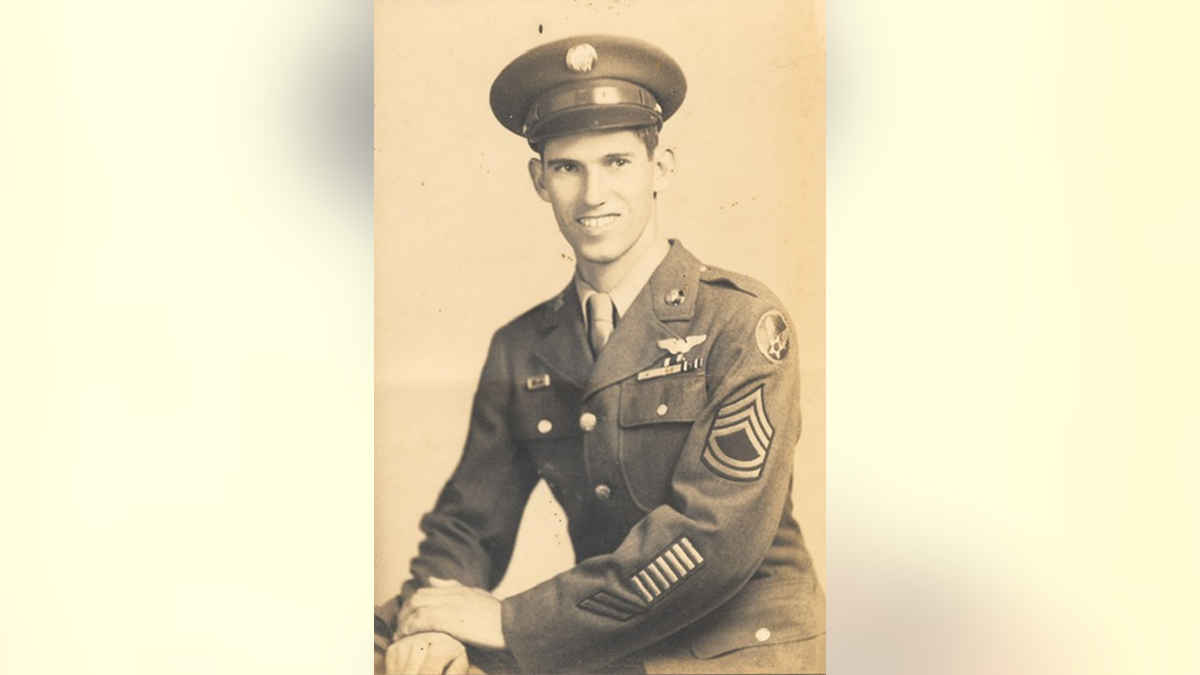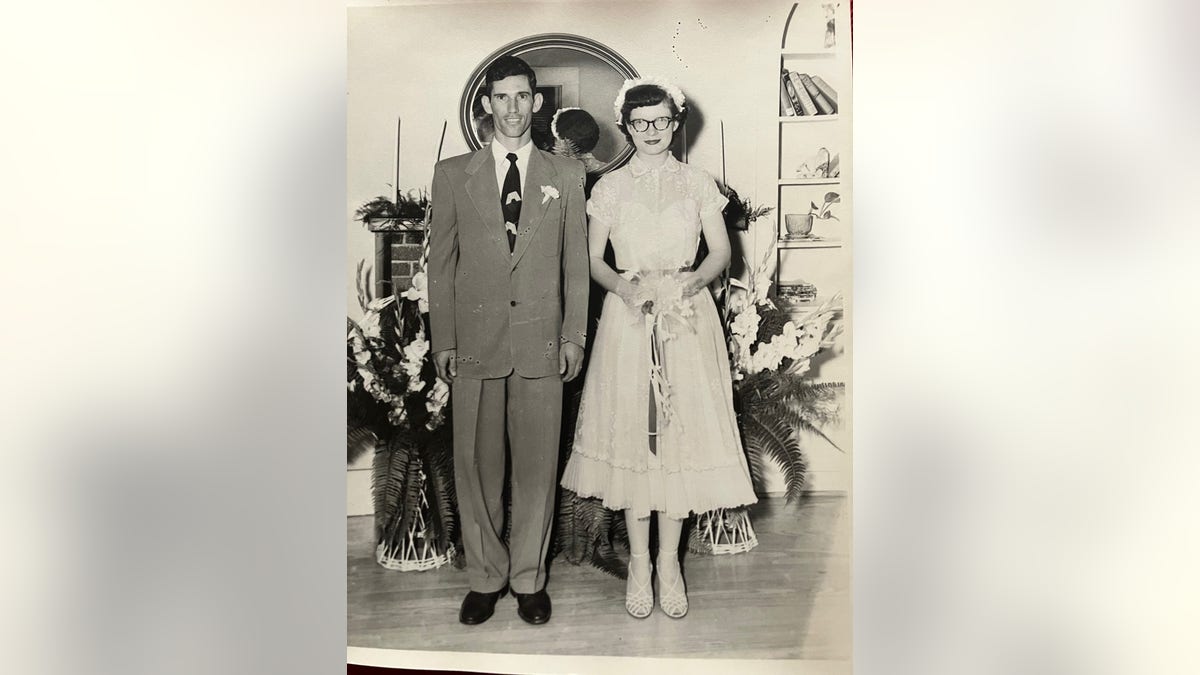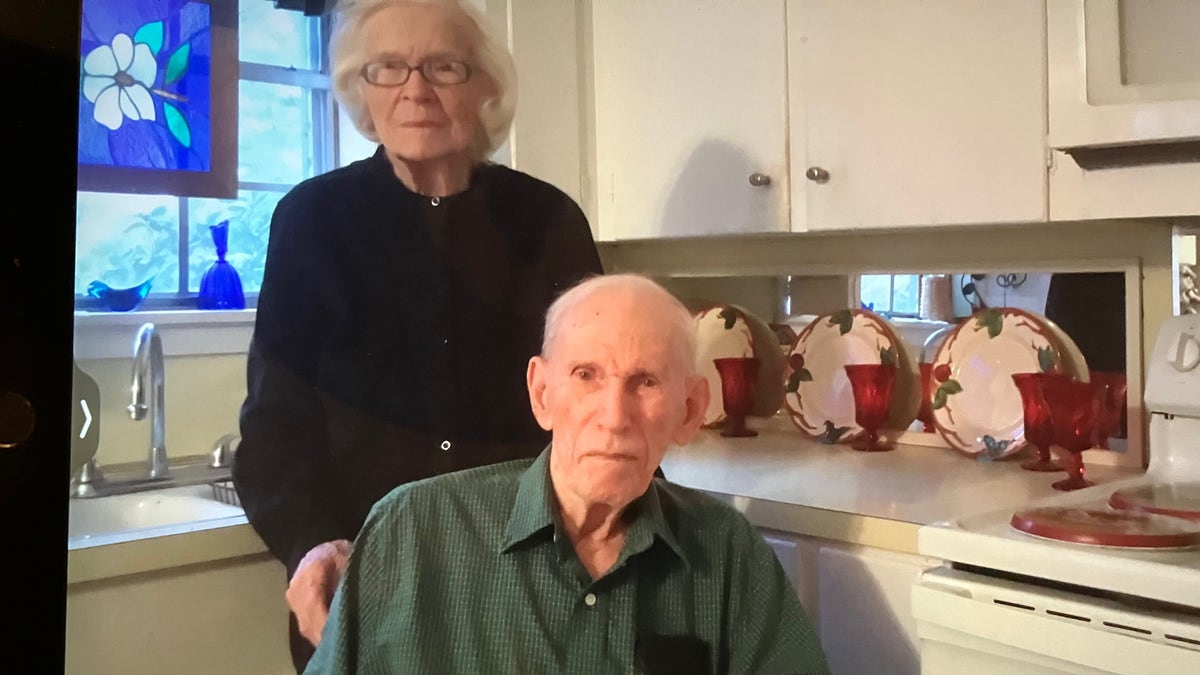Fox News Flash top headlines for January 6
Fox News Flash top headlines are here. Check out what's clicking on Foxnews.com.
Lloyd Ponder fought on Bataan in the Philippines during World War II and made his last stand on the island rock of Corregidor before a surrender order forced him to become a prisoner of Imperial Japan.
At age 101, he is one of the last remaining survivors of the ordeal. He encourages today’s generations to see the silver lining in every hard situation.
"I had a hard education in the prison camps," Ponder said, from his home in Natchitoches, Louisiana. "You can die so easily. Yet where there’s determination, faith, and a will to live, you can overcome impossible odds. I remember looking at the sky at dusk and thinking, ‘That sunset would look so pretty, if only the barbed wire weren’t there.’"
NAZI TREASURE MAP AVAILABLE TO PUBLIC, REVEALS POSSIBLE LOCATION OF GOLD, DIAMOND TROVE
Born October 12, 1921, in Pleasant Hill, Louisiana, Ponder was the first of five brothers. He graduated as high school valedictorian. But with no money for college, Ponder enlisted in the U.S. Army Air Corps, the precursor to the Air Force, and trained to become an airplane mechanic.

Bataan survivor Lloyd Ponder in his Air Force uniform. (Courtesy the family of Lloyd Ponder)
"I always loved airplanes," he said. "We sure could have used some on Bataan."
His outfit, the 116th Squadron, 27th Bombardment Group, sailed for Manila in fall 1941 and arrived a week before the attacks on Pearl Harbor. When war broke out in the Philippines, most of the airplanes were destroyed, so Ponder fought as an infantryman. But the Allied troops were outnumbered and cut off from resupply.
"We ate our horses," Ponder said. "Small ponies were pretty good, but mules were tough to eat."
Bataan fell on April 9, 1942. American and Filipino troops were rounded up and marched to various POW camps in the infamous Bataan Death March. Separated from his unit and feverish from malaria, Ponder dodged the roundup and escaped by night on a tugboat to Corregidor. He recovered enough to fight with the U.S. Marines until the island fell a month later.

Lloyd Ponder and his future wife Joyce Wiggins, Aug 12, 1950. (Courtesy the family of Lloyd Ponder)
"I was dog tired," Ponder said, "mentally worn out from continuous artillery shelling, probably at the lowest point of my entire life. I remember thinking, ‘No one on this earth can help me now. My life is in God’s hands.’"
For the next three and a half years, Ponder endured a series of POW camps. He witnessed fellow prisoners being beaten and killed. He was hit in the face with the heel of a guard’s shoe. A recurring bout of malaria troubled him intensely.
"Malaria is vicious stuff," Ponder explained. "It kills the appetite for anything. But you got to eat to live. One day, suffering from chills, I wrapped myself in a blanket and sat to eat my ration of rice. A fellow walked by in search of more rice. Victims of malaria were a prime hunting ground. This fellow reminded me of a vulture, and I determined to eat all of my ration. Slowly, one small bite at a time, I ate it all. He got up, disgusted, and walked away."
In July 1944, Ponder was one of 1,600 prisoners transferred to Japan aboard the Nissyo Maru, a rusting unmarked freighter.
"I had a hard education in the prison camps," Ponder said, from his home in Natchitoches, Louisiana. "You can die so easily. Yet where there’s determination, faith, and a will to live, you can overcome impossible odds. I remember looking at the sky at dusk and thinking, ‘That sunset would look so pretty, if only the barbed wire weren’t there.’"
"What I saw when I reached the top of the gangplank and looked into the hold made me think I was having a nightmare," Ponder said. "They just kept cramming more men inside. All space was taken. Not a breath of air. No sanitation facilities. Wasn’t even possible for us all to sit. We were a mob—pushing, shoving, yelling."
CLICK HERE TO SIGN UP FOR OUR OPINION NEWSLETTER
In Japan, Ponder labored under brutal conditions at a locomotive factory. Five feet ten inches tall, his weight dropped to 90 pounds.
"We talked of nothing but food," Ponder said. "One of our men was caught with some potato peelings he’d snatched from a rubbish heap. He was slugged with a rifle butt, beaten by guards, and kicked in the face after he fell to the ground."
At last, on August 15, 1945, faced with defeat, Japan agreed to an unconditional surrender. The camps were liberated. On the ride home, Ponder added 15 pounds to his frame, sailing under the Golden Gate Bridge a day before his 24th birthday.

Lloyd and his wife Joyce Ponder in January, 2023. (Courtesy the family of Lloyd Ponder)
"I thought our country never looked so beautiful," Ponder said.
CLICK HERE TO GET THE FOX NEWS APP
He earned a bachelor’s degree from Northwestern State College, a master’s from Oklahoma A&M, and married his sweetheart, Joyce. They have two children. Ponder worked in the Louisiana vocational educational system, serving his last 12 years as director of the Natchitoches Trade School before retiring in 1980.
What’s the biggest lesson he learned during the war?
"I made a habit of daily prayer," Ponder said. "When everything appeared hopeless, I’m certain God sustained me."









































